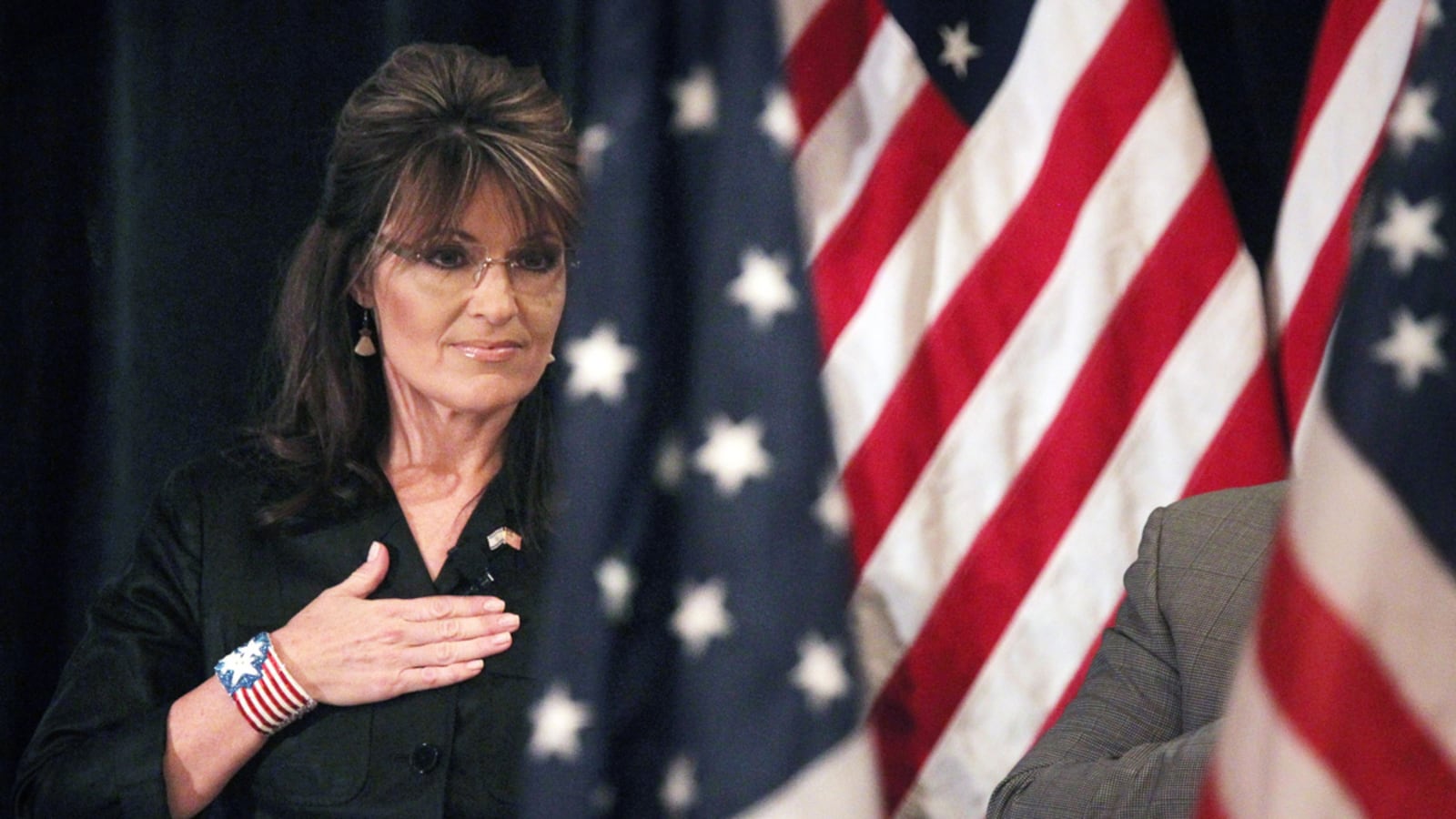Journalists and ironists, as well as Jon Stewart and Stephen Colbert, are unhappy that Sarah Palin isn’t running. But anyone else? Actually, yes. She does have fans, and millions of them. And Chris Christie, while he may not be a Palin-level celebri-pol, sure had pulses pounding last week at the Reagan library. Palin and Christie are high-wattage personalities. The GOP field right now lacks them. This may or may not make a difference next November, but it will make a lot of difference during the primary season and will probably end up helping Mitt Romney—if Republican voters can learn to love him, which is still a big question.
It’s close to unprecedented in recent history that a party’s two biggest names (Palin is certainly one; Christie is arguable, but I’d say that just because of his swagger and his proximity to the New York media market, he’s up there) don’t run for president. The Democrats faced a similar situation in 1988 and 1992, when Mario Cuomo, probably their brightest light at the time, didn’t get in. In 1988 his decision had a big effect, as Democrats didn’t really know where to go among their choices, finally settling on Michael Dukakis without great enthusiasm. I remember lots of people saying, for a long time, “I still wish Mario had run” (of course, I was in New York then). In 1992 Bill Clinton was eventually able to emit enough star power, once he fought his way through the brambles of Gennifer Flowers and the draft-dodging charges, to make Democrats forget about Cuomo.
Primary voters have two qualities by which they operate: ardor and calculation. They want ardor first. In 2004 many Democrats loved Howard Dean. He was the ardor candidate. Then he flubbed in Iowa, and voters moved en masse to the calculation candidate, John Kerry. Few voters were really excited about Kerry. But when the ardor fades, the psychological and emotional impulse of voters is to move more quickly toward the least objectionable of the remaining bunch, who has the best shot of winning—to embrace calculation. Democrats did that in 1988 too, after Cuomo didn’t run.

Republicans haven’t usually been confronted with such stark choices. They’ve been fortunate in that they’ve had two candidates in recent history who filled both slots. Ronald Reagan and George W. Bush were the frontrunners in 1980 and 2000, but they also inspired a great deal of passion from the base. John McCain and Bob Dole were calculation candidates, as was George H.W. Bush. But the difference between those situations and the Democratic ones is that none of them had to topple (or outshine the memory of) a serious ardor candidate. The GOP had its ardor candidates, like Pat Buchanan in 1992, but they were understood to be temporary phenomena or unelectable.
So this is a new situation for Republicans. They have only calculation candidates—I suppose Rick Perry inspires some ardor, but not on the Reagan-Dubya scale—while the two leading ardor figures in the party are going to be sitting on the sidelines watching, making news from time to time, being there as constant reminders of what could have been. I suppose Ron Paul and Herman Cain are ardor candidates, but they’re not getting the nomination. So what happens?
I’d wager it brings Republican primary voters to the point of calculation a little more quickly, and leads them to think, “Well, out of the bunch we got, who’s most likely to beat the Kenyan?” And I think most of them will answer: Romney. But then, Romney has to show them he’s inevitable: he has to do things to make them think it’s going to be him. It’s like that poll that came out this week asking people if they thought Obama would be reelected. There, even many people who presumably want Obama to be reelected said no. Romney needs that in reverse—he needs even people who aren’t for him to think that he’s going to win. In a multicandidate primary campaign, having that aura about you is gold. So he needs to take steps to create it.
He’ll have a chance to start the process this weekend—the Values Voter Summit looms, at Washington’s Shoreham Hotel. Not exactly his kind of room. These are not people who believe the Garden of Eden was in Missouri, or whatever it is the Mormons say. He needs to give a speech that not only reassures them on a few of the basics, but tells them the train is revving up and they need to hop on board.
I remain somewhat bullish on Perry’s chances. There’s every chance he could win this weekend and generate a few days of “Perry Bounces Back” stories. I also wouldn’t doubt that he and his people are sitting on a decent-sized folder of oppo stamped “Romney and Immigration” and will divulge the contents when they need to, thus blunting the advantage Romney seems to be gaining on that issue. And there’s plenty of time yet. Romney is unlikely to be sealing any deals in the near future.
And in the meantime, a Sarah-less near-term future. I for one am relieved. I can’t stand the mere sight of her. But I suppose I did perversely enjoy seeing what she brought out in people. Hey—is there still time for Hank Williams Jr. to file papers?






